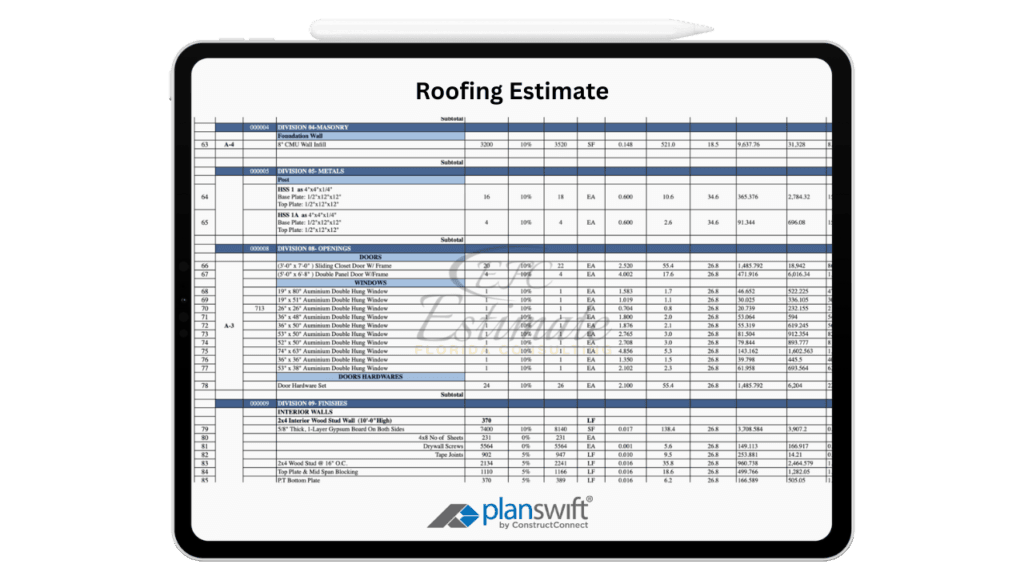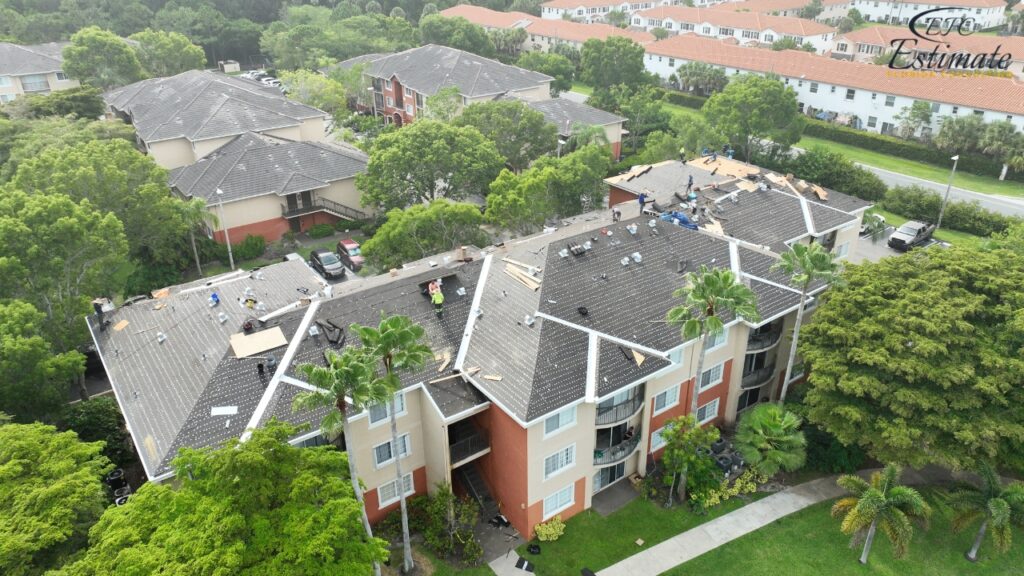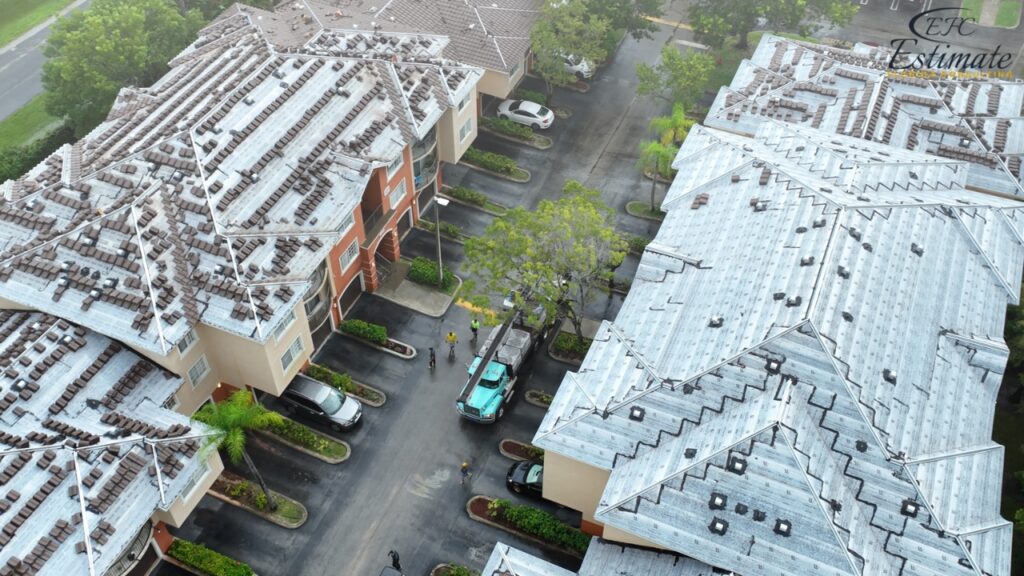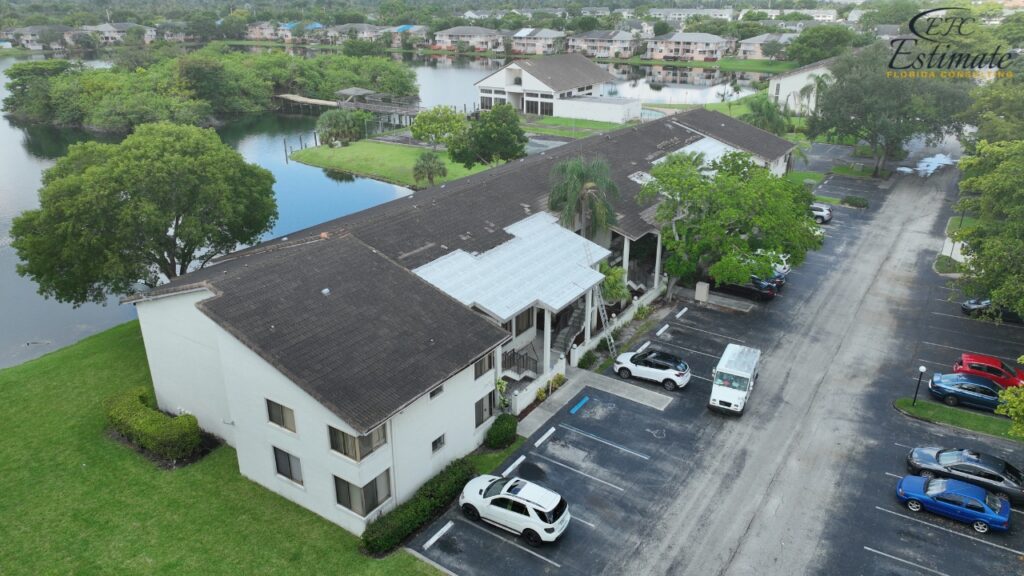90% More Chances to Win Projects With Our Estimate!
- Multi-Family Building
- Hotel Building
- Hospital Building
- Warehouse Building
- School & University Building
- High-Rise Building
- Shopping Complex
- Data Center Building

When considering the cost of replacing the roof on a 1,500-square-foot house, homeowners typically face a range that can vary significantly, generally falling between $5,000 and $15,000. This wide range reflects the variations in materials, labor, and specific regional considerations. More expensive materials, such as slate or tile, will elevate the overall cost, while affordable options like asphalt shingles can help keep expenses manageable. Understanding the complete cost breakdown and its influencing factors will enable homeowners to budget effectively for this essential home improvement project, ensuring that their investment yields both immediate and long-term benefits.

Gaining insight into the average cost breakdown for a roof replacement can help you manage your budget more efficiently. Below is a detailed overview of how costs are typically distributed across materials and labor.
Roofing Material | Cost per Square | Total Cost for 1,500 sq ft |
Asphalt Shingles | $90 – $100 | $4,500 – $7,500 |
Metal Roofing | $250 – $400 | $11,250 – $15,000 |
Tile Roofing | $600 – $900 | $27,000 – $40,500 |
Slate Roofing | $800 – $1,500 | $36,000 – $67,500 |
Labor costs generally account for about 40% to 60% of the total project cost. Here’s an estimate of labor costs for a 1,500-square-foot roof replacement:
Labor Cost per Square | Total Labor Cost |
$150 – $300 | $7,500 – $12,000 |
Overall, homeowners should anticipate the combined cost of materials and labor to vary based on their specific project requirements.
Several critical factors come into play when determining the total cost of a roof replacement. Understanding these factors can help homeowners make informed decisions and anticipate the overall expenses involved.
The type of roofing material chosen significantly influences the overall cost of the project. Each material has its advantages, drawbacks, and associated costs. Below are some commonly used roofing materials and their typical costs:
Choosing the right roofing material not only impacts the upfront cost but also influences the roof’s longevity, maintenance needs, and overall property value.
The design and complexity of the roof can significantly impact the total cost of replacement. Simple, flat roofs tend to be less expensive to replace than roofs with multiple angles, slopes, or features such as dormers or skylights. A complex roof design may require additional materials and labor, leading to increased costs.
For example, a simple gable roof, characterized by its triangular shape, may cost significantly less to replace than a hip roof, which features slopes on all sides. The more intricate the roof’s design, the higher the labor and material costs will likely be.
Understanding your roof’s design can help you budget more accurately and prepare for potential complications during the replacement process.
Labor costs can vary widely based on geographic location, the roofing contractor’s experience, and the complexity of the job. On average, labor costs for roof replacement can range from $150 to $300 per square, depending on the roofing type and local market conditions. For a 1,500-square-foot house, this could add an additional $7,500 to $12,000 to your project costs.
To ensure a fair price for labor, it’s essential to obtain multiple quotes from reputable contractors. This approach not only helps in securing competitive pricing but also allows you to assess the quality of work, as experienced contractors will often provide a detailed scope of work and timelines.
Your geographical location plays a significant role in roofing costs, influenced by factors such as labor rates and material availability. Additionally, local building codes and regulations may require specific roofing materials or installation methods, which can further affect costs.
For instance, homeowners in areas prone to extreme weather, such as hurricanes or heavy snow, may be required to use more durable roofing materials or additional structural support. Understanding local regulations and requirements can help you navigate the cost implications of your roofing project more effectively.

Replacing a roof is a significant investment, so it’s essential to ensure you get the most value for your money. Consider the following points to maximize your return on investment for your next roof replacement.
Before replacing your roof, check if your homeowners insurance policy covers repair or replacement costs due to severe weather or fallen trees. Contact your insurance provider to understand the claims process for roof damage. Often, insurers will send an adjuster to assess the damage and determine if your policy covers it. If approved, your insurance may pay for part or all of the replacement costs, potentially saving you a significant amount of money.
To strengthen your claim, remember to:
If your claim is approved, your insurer may provide a list of preferred roofing contractors. Keep in mind that even with an approved claim, you may still need to pay the deductible outlined in your policy, and consider the potential long-term impact on your insurance premiums. Exploring your homeowners insurance options can significantly reduce out-of-pocket costs and ensure proper coverage for any damages.
To ensure a fair price for your roof replacement, obtain quotes from three to five reputable roofing contractors. Provide them with detailed project information to receive accurate estimates. When reviewing the quotes, consider:
This approach will help you choose the best value for your investment and avoid overpaying.

While the idea of saving money through a do-it-yourself (DIY) roof replacement may be appealing, it’s crucial to recognize the potential pitfalls:
The timing of your roof replacement can significantly affect the project’s cost and quality. Roofing contractors may charge higher prices and have longer wait times during peak seasons, typically in spring and summer. By scheduling your roof replacement in the fall or winter, when demand is lower, you may secure better deals and competitive pricing.
Winter, in particular, can be a favorable time for roof replacement, as contractors often have fewer projects lined up. Scheduling during off-peak times may allow you to get more competitive quotes and prioritize scheduling with contractors looking to maintain steady work.
In addition to the primary costs associated with roofing materials and labor, several other factors may contribute to the overall expense of a roof replacement project. Here are some additional costs to keep in mind:
If your existing roof needs to be removed before the installation of the new roof, this can incur additional costs. Roof removal typically costs between $100 and $150 per square. For a 1,500-square-foot roof, the cost for removing old roofing could range from $1,500 to $2,250. Properly budgeting for this step is crucial, as it can add significant costs to your overall project.
Once the old roofing is removed, it is common to discover underlying issues, such as damaged wood decking or inadequate ventilation. Repairing these issues can increase overall costs, with estimates ranging from $500 to $2,000, depending on the extent of the damage and necessary materials. Addressing these underlying problems is essential to ensure the longevity and performance of the new roof.
Replacing your roof not only protects your home but also offers numerous benefits that can enhance your living environment and property value. Here are some key advantages to consider:
A new roof can significantly boost your home’s market value, making it more appealing to potential buyers. A well-maintained roof is a crucial selling point that can set your home apart in a competitive market.
New roofing materials often provide better insulation and energy efficiency, which can lead to lower energy bills. By upgrading to energy-efficient roofing options, homeowners can enjoy long-term savings on heating and cooling costs.
A new roof ensures that your home is better protected against the elements, reducing the risk of leaks, water damage, and mold growth. Investing in a quality roof enhances your home’s safety and longevity.
Selecting the right roofing contractor is vital to ensure the success of your roof replacement project. Here are some tips for choosing a reputable contractor:
While roof replacement can be a significant expense, there are strategies homeowners can employ to save money without compromising quality. Here are some effective ways to cut costs:
Consider scheduling your roof replacement during the off-peak season, typically late fall or early spring. Contractors may offer lower rates during these times due to decreased demand, which can help you save money.
Opt for materials that balance cost and longevity. Asphalt shingles offer a budget-friendly option with a decent lifespan, while metal roofing provides durability and energy efficiency. Choosing the right material for your climate and budget can result in long-term savings.
To ensure a smooth roof replacement process, avoid these common mistakes:

Obtaining multiple quotes for your roof replacement project is crucial, but thoroughly analyzing each quote and negotiating effectively is just as important to secure the best price possible.
When reviewing a roofing contractor’s quote, don’t just look at the total cost. Pay close attention to the fine print for potential hidden costs or exclusions. A comprehensive quote should clearly outline the following:
After gathering multiple quotes, compare them side by side to identify significant differences. Reputable contractors provide detailed and transparent quotes that align with industry standards, making it easier for you to make informed decisions.
Once you’ve analyzed the quotes and identified your preferred contractors, it’s time to negotiate for the best possible price. Here are three effective strategies:

Replacing the roof on your 1,500-square-foot house is a significant investment that requires careful planning and consideration. By understanding the various factors that influence cost and exploring the different options available, homeowners can make informed decisions that align with their budget and needs.
The cost can vary widely, typically ranging from $5,000 to $15,000. Factors influencing this range include the type of roofing materials, labor costs, and specific regional factors.
Common roofing materials include:
Labor generally makes up about 40% to 60% of the total cost. For a 1,500-square-foot roof, labor costs can range from $7,500 to $12,000, depending on the complexity of the job and the contractor's experience.
Several key factors include:
Yes! Additional costs may arise from:
Here are a few tips:
Ensure the contractor is:
While DIY might seem cost-effective, it carries significant risks:
Replacing your roof can offer numerous advantages:
At Estimate Florida Consulting, we offer detailed cost estimates across all major trades, ensuring no part of your project is overlooked. From the foundation to the finishing touches, our trade-specific estimates provide you with a complete and accurate breakdown of costs for any type of construction project.

We take pride in delivering accurate, timely, and reliable estimates that help contractors and builders win more projects. Our clients consistently praise our attention to detail, fast turnaround times, and the positive impact our estimates have on their businesses.
Estimate Florida Consulting has helped us win more bids with their fast and accurate estimates. We trust them for every project!

Submit your project plans, blueprints, or relevant documents through our online form or via email.
We’ll review your project details and send you a quote based on your scope and requirements.
Confirm the details and finalize any adjustments to ensure the estimate meets your project needs.
Receive your detailed, trade-specific estimate within 1-2 business days, ready for your project execution.

561-530-2845
info@estimatorflorida.com
Address
5245 Wiles Rd Apt 3-102 St. Pete Beach, FL 33073 United States
561-530-2845
info@estimatorflorida.com
Address
5245 Wiles Rd Apt 3-102 St. Pete Beach, FL 33073 United States
All copyright © Reserved | Designed By V Marketing Media | Disclaimer